Hormones of the Gonads, Pineal Gland, and Thymus
Objective 10
List the major hormones and their physiological effect secreted by the ovaries and testes, the pineal gland, and thymus.
Gonads
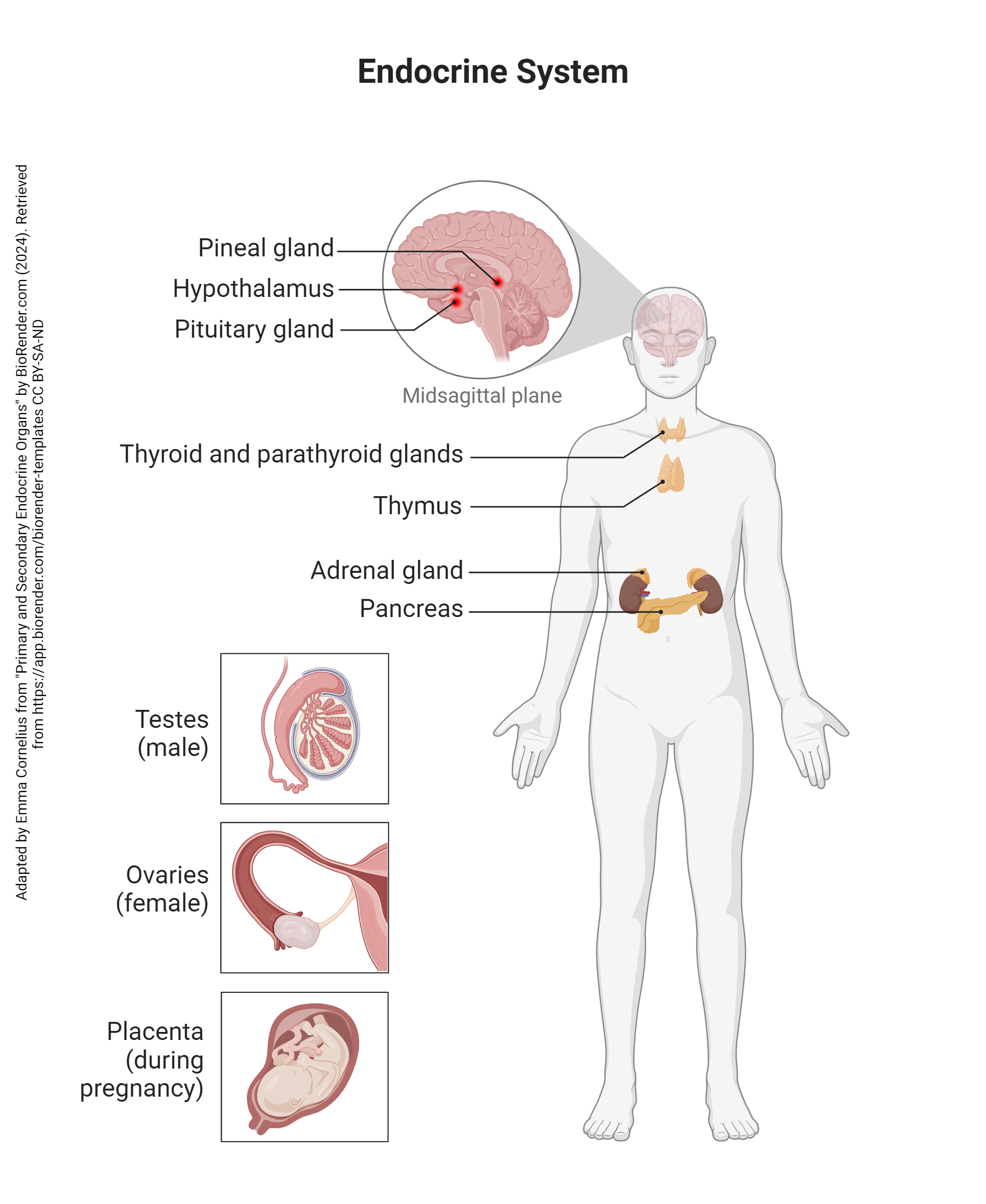
The gonads (ovaries in females, testes in males) are the organs responsible for gamete production. They also have endocrine functions. In response to FSH and LH from the pituitary, the gonads produce various hormones.
The ovaries produce estrogen and progesterone. These two hormones, along with FSH and LH from the anterior pituitary, control the female menstrual cycle. After ovulation occurs, the ovaries also produce inhibin, which suppresses the release of FSH. The ovaries have an additional role during pregnancy. Along with the placenta, the ovaries produce relaxin, which helps dilate the cervix during labor and delivery, and relaxes the pubic symphysis.
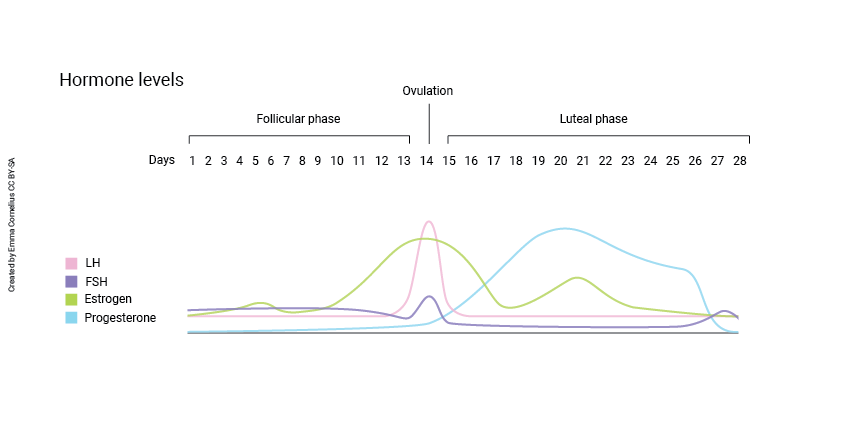
This graph shows the complex nature of hormones controlling the female menstrual cycle. For the time being, you do not need to understand the interaction of these hormones….we’ll leave that for something to look forward to in Unit 20.
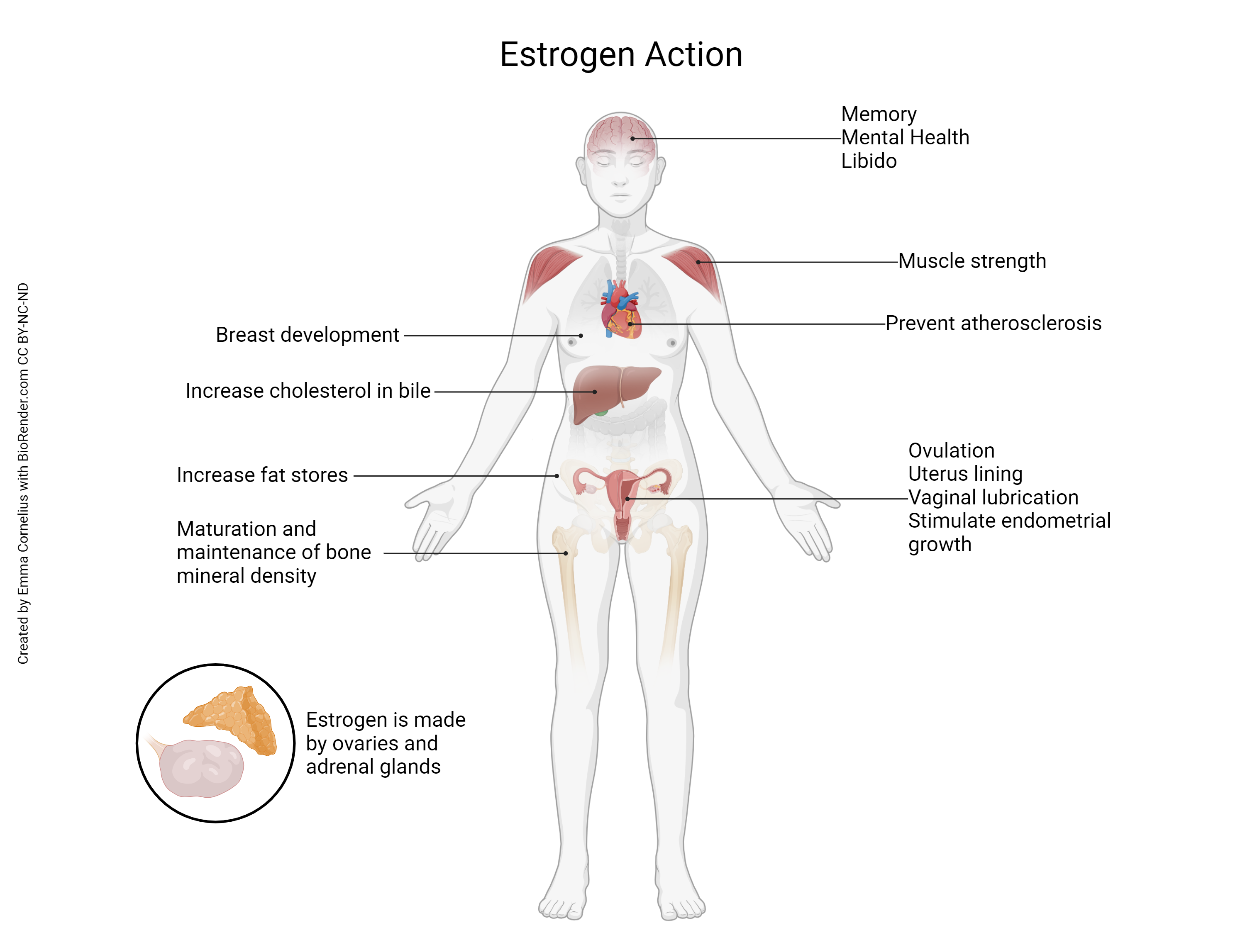
Estrogens and progesterone also promote the development of female secondary sex characteristics at puberty such as breast development, hair growth in the pubic area and underarms, and widening of the hips.
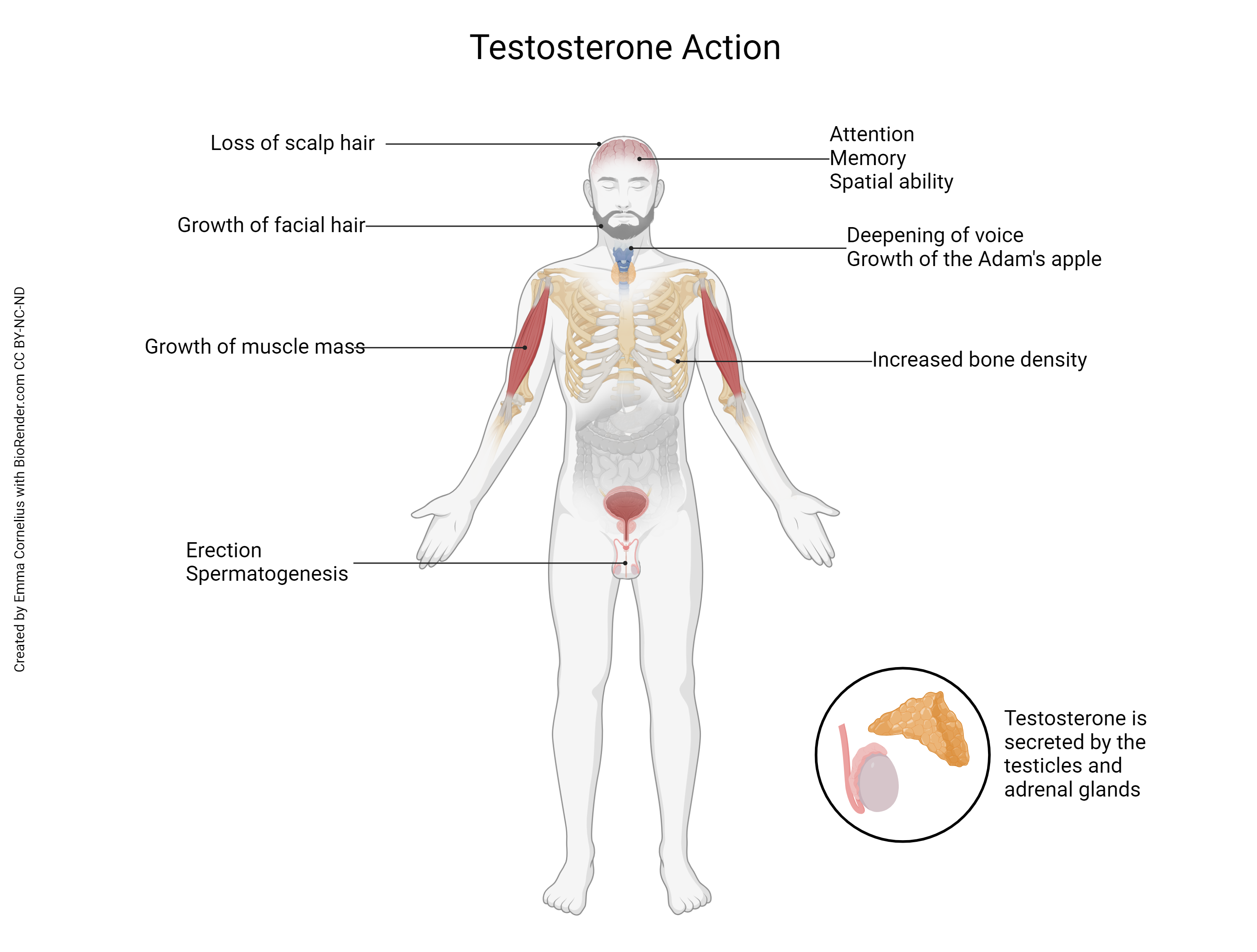
The main hormone produced by the testes is testosterone. This hormone stimulates the testes to descend from the abdominal cavity to the scrotum before birth, controls the production of sperm, and stimulates male secondary sex characteristics, those that develop with puberty. The testes also produce inhibin, which suppresses the secretion of FSH.
Clinical Connection
Anabolic steroids are synthetic versions of testosterone. They are commonly used for enhancing athletic performance along with growth hormone. Anabolic steroids may increase muscle mass. Use of anabolic steroids and growth hormone for athletes is illegal. Serious side effects may occur. Increased cholesterol levels may occur, blood pressure may increase, and damage to the liver may occur. Anabolic steroids may also cause damage to the heart. Because testosterone is eventually converted to estrogen, these drugs may actually have a feminizing effect in males, including enlarged breast tissue and small testicles. In females they may cause an enlarged clitoris and facial and chest hair growth. In both sexes they may cause aggression, depression, sleep disturbances, severe acne, and infertility.
Pineal Gland
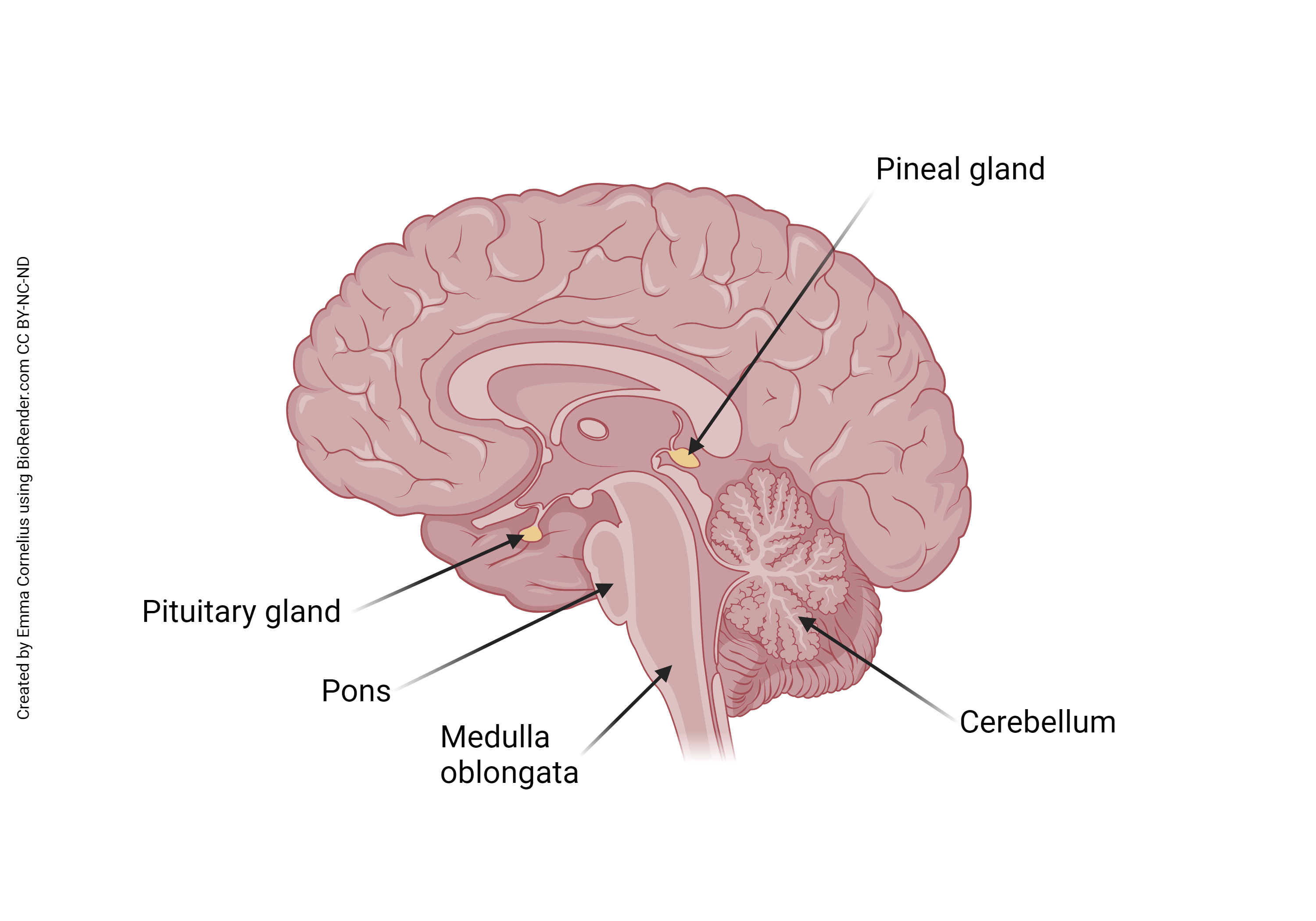
The pineal gland is attached to the top of the third ventricle of the brain; it is part of the epithalamus.
The pineal gland produces and secretes a hormone called melatonin. It is theorized that melatonin assists with the setting of the daily biological clock by promoting sleepiness. More melatonin is released during darkness than light.
Sleep/wake cycles are very evident when comparing different seasons of the year. What if the doorbell rings at 8 PM during the dark winter months? People get mad because they are getting ready for bed. What if the same salesman drops by at 8 PM in the summer months? People still get mad, but it’s because he interrupted dinner on the patio.
Thymus Gland
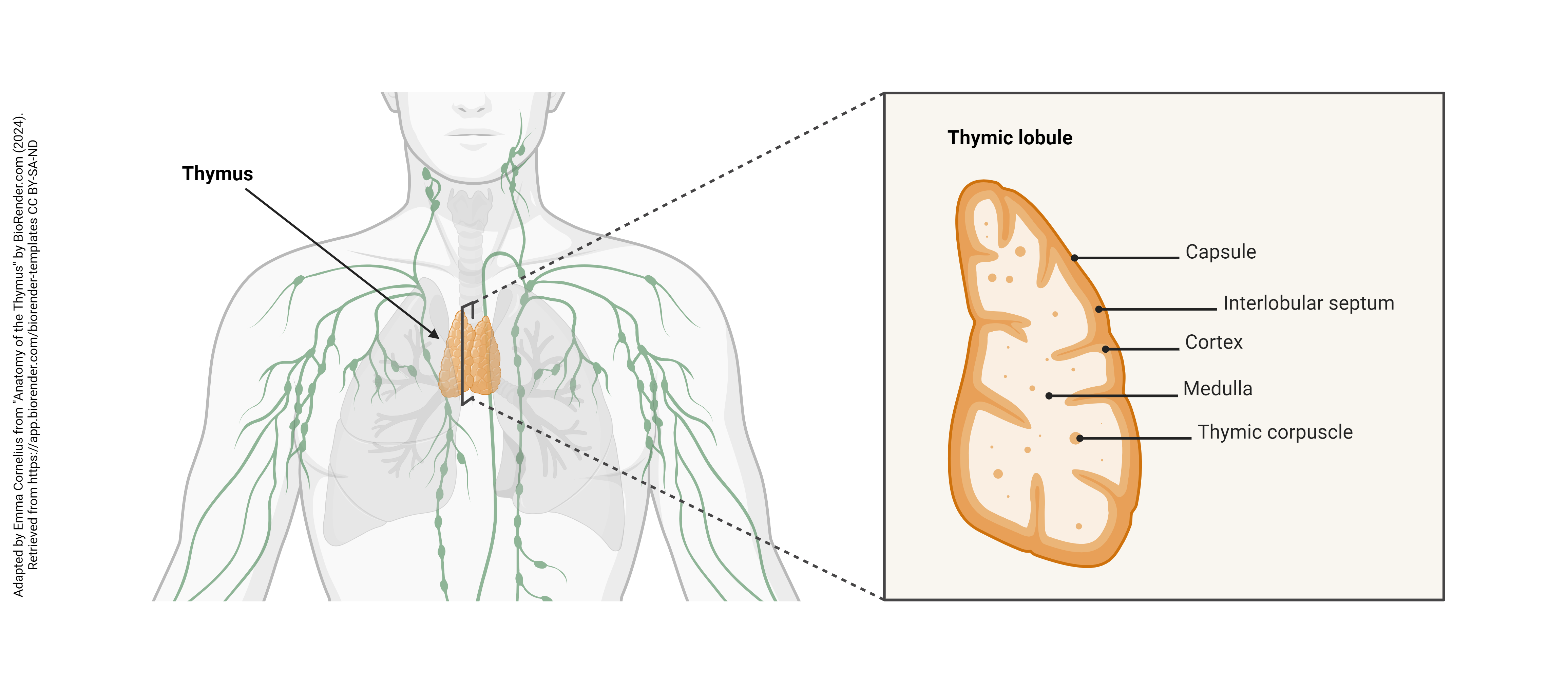
The thymus gland is located in the mediastinum (behind the sternum and between the lungs). The thymus is important to our immune system, and is discussed in more detail in Unit 15.
Thymosin and other related hormones from the thymus gland encourage the maturation of T-lymphocytes, a specific type of white blood cell (WBC) crucial for fighting disease.
Media Attributions
- U14-054 Endocrine System © Cornelius, Emma is licensed under a CC BY-NC-ND (Attribution NonCommercial NoDerivatives) license
- U14-055 Female Reproductive Hormone Cycles © Cornelius, Emma is licensed under a CC BY-SA (Attribution ShareAlike) license
- U14-056 Estrogen Action © Cornelius, Emma is licensed under a CC BY-NC-ND (Attribution NonCommercial NoDerivatives) license
- U14-057 Testosterone Action © Cornelius, Emma is licensed under a CC BY-NC-ND (Attribution NonCommercial NoDerivatives) license
- U14-058 Pituitary and Pineal Glands © Cornelius, Emma is licensed under a CC BY-NC-ND (Attribution NonCommercial NoDerivatives) license
- U14-059 Thymus © Cornelius, Emma is licensed under a CC BY-NC-ND (Attribution NonCommercial NoDerivatives) license

